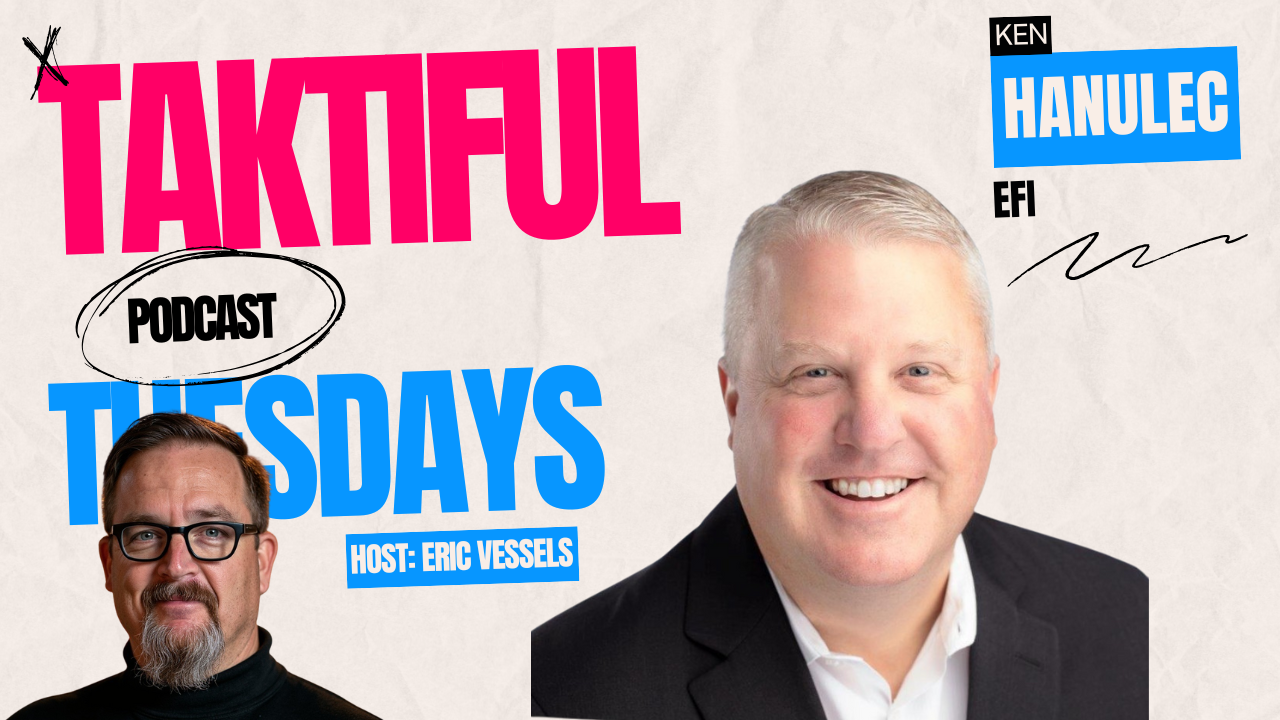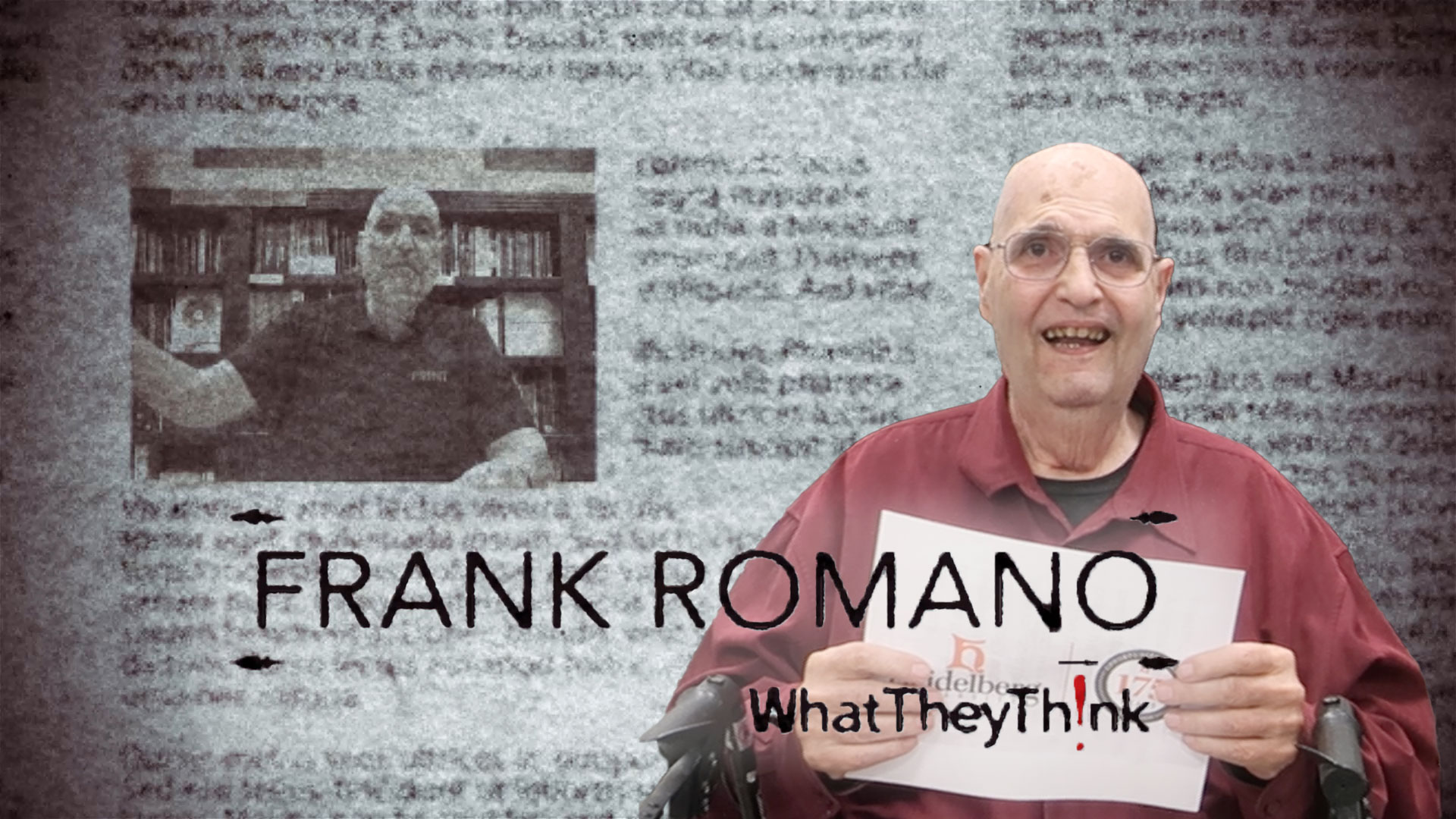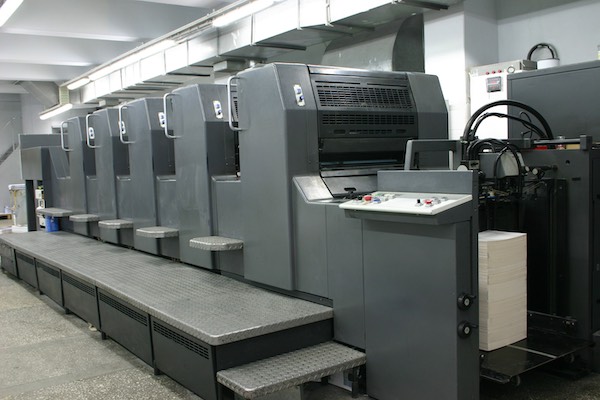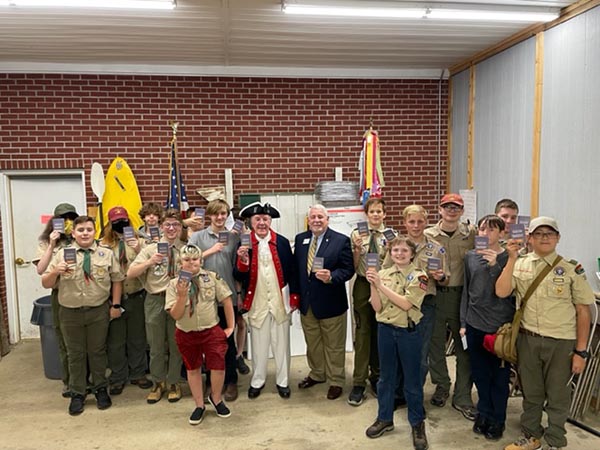
The aims of the BRI Pocket Constitutions Program are to teach students the principles of America’s founding documents and to help them appreciate the role of printing in the establishment of American democracy.
Printer John Dunlap produced the first printed copies of the Declaration of Independence in his Philadelphia shop during the night of July 4, 1776. The job consisted of 200 copies of a broadside—a sheet printed on a single side—to be distributed to the 13 colonies as a proclamation that they now belonged to a free and sovereign nation.
For the safety of the signers, who risked charges of treason by appending their names to the revolutionary statement, the Dunlap broadside bore only the names of John Hancock and Charles Thomson. Mary Katherine Goddard, printer and postmaster to the Second Continental Congress in Baltimore, produced a version containing the names of all the signatories in January 1777.
Like the Dunlap edition, Goddard’s broadside was sent to the former colonies—now independent states—to validate the Declaration as the new nation’s seminal document.
During the 1787 Constitutional Convention that knitted the states together as a republic, Dunlap made history again—literally and figuratively—by printing about 1,300 copies of the newly drafted Constitution of the United States. He and his partner David Claypool released it to the general public by publishing the text in a special issue of The Pennsylvania Packet and Daily Advertiser, a Philadelphia newspaper they owned.
Committed Now as Then
Democracy could never have taken root in America as swiftly and firmly as it did without the steadfast support it received from printers. That commitment remains in full force as latter-day printers rally to a project that aims to place printed copies of both documents in the hands of high school students all across the country.
The project is an initiative of the Bill of Rights Institute, (BRI) a privately funded 501(c)3 group that promotes civics education for students and their teachers. In operation for about a decade, BRI’s Pocket Constitutions Program distributes compact booklets containing the Constitution and the Declaration free of charge to teachers who request them as instructional tools.
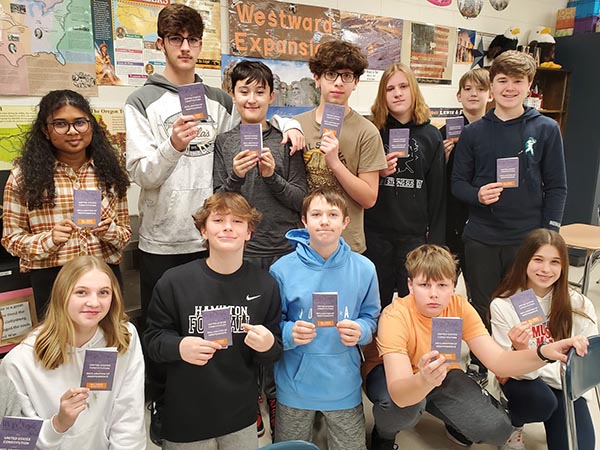
Teachers can request up to 100 free copies of BRI’s Pocket Constitutions booklet, which contains the full text of that document as well as the text of the Declaration of Independence.
Hundreds of thousands of copies have been produced over the life of the program, which relies on donations and in-kind contributions for support. At one point, however, production of the booklets had ceased for lack of resources. That presented itself as an opportunity to Justin Goldstein, who joined BRI last December as its Director of Corporate Relations.
Earlier in his career, Goldstein served for seven years as Director of Member Services for Printing Industries of America (PIA), the former national trade association. He says that upon joining BRI, he was chagrined to discover that the booklet program had run out of funding.
Good Help from Good Friends
“So a light bulb went off in my head,” he recalls. “I said, I have a lot of good friends in the graphic arts industry. I’m wondering if some printers would be willing to donate their time and services to produce Pocket Constitutions as a tax deductible opportunity.”
Goldstein’s contacts in the industry were still strong, particularly among the regional trade groups that had been under the organizational umbrella of PIA. At his request, some of the former affiliates reached out to their members, and pledges of support started coming in.
As of this writing, the renewed program has produced about 33,000 booklets for students in Ohio, Nebraska, North Carolina, and South Carolina. Goldstein is hoping to rally participation by print industry donors in the rest of the states as well.
“The demand is unrelenting now from high schools and teachers and students,” he says of the volume of requests for the booklets that BRI has received. “We have waiting lists. Printers, binderies, and suppliers can donate whatever they’re comfortable with. It’s an ongoing initiative. There’s no end date for it.”
The program also needs financial support in the form of money for postage. Goldstein says it costs about $6 to mail 100 booklets—an expense that he suggests a paper company, an ink supplier, or an equipment manufacturer might be willing to defray in bulk.
Vehicle for Branding
If they wish to, providers of in-kind services can promote employment opportunities at their companies by adding their own names to the booklets. “We are more than happy to promote careers in the graphic arts industry,” Goldstein says. “These are going to high school kids. We are completely open to putting that on the inside cover of the Pocket Constitution. That’s our connection with the next generation.”
Spanning generational divides with print, Goldstein emphasizes, is what the Pocket Constitutions Program exists to do.
“The aim of this initiative is to teach students the principles of our founding documents and the appreciation of how the printing press motivated people to be citizens and fight for their rights as Americans,” he says. “Print changed the world by making the mass distribution of these documents possible.”
The impact of print and the changes it wrought come vividly alive for young Americans who receive booklets made specially for them by American printers, according to Goldstein.
An Emotional Connection
“We’ve seen teachers give them as gifts at the end of class when students graduate,” he says. “Teachers are using the Pocket Constitutions to help young people form a connection with the founding documents, so getting this resource is a very emotional experience for them. It's a testament to the graphic arts industry that almost 250 years later, these documents still resonate in printed form.”
No one holds these truths to be more self-evident than the printers whose generosity has made the rebirth of the Pocket Constitutions Program possible.
Michael Duhr, co-owner of Foote Printing in Cleveland, worked with an Ohio-based trade binder to produce 15,000 copies of the booklets for high school seniors throughout the state. He hopes the documents will serve as touchstones for them now and later in life as well.
“Nowadays, I don’t think kids are learning as much as they should about being civic minded and knowing the Bill of Rights and the Constitution properly,” Duhr says. The founding documents “hopefully will be something they can refer to when they’re out and about.”
“Let’s Just Cover Nebraska”
“Let’s just cover Nebraska” was Mardra Sikora’s response when she learned that 1,400 requests for booklets had come to BRI from her state. Her shop, Wright Printing of Omaha, printed, bound, and shipped all of them in an effort that she speaks of as something amounting to a personal crusade.
“When you’re a born and bred print geek, you know that print was super critical to the foundation of our country,” she says. “I think it’s important to continue that tradition of educating everyone on our history. I also think that having the Pocket Constitution in your hands is way more impactful than scrolling on a phone. It lends the weight that’s required and makes it more of a living document. That really important for people of all ages.”
Phil Kelley, Jr., President and CEO of Salem One in Winston-Salem, N.C., says that when The Printing Industry of the Carolinas (PICA) approached him about donating services to the booklet program, “it took me three minutes to respond yes, exclamation point.” The company volunteered to cover all of the teacher requests from North Carolina and South Carolina by printing, binding, and shipping 15,000 copies.
Kelley says that one reason he got on board with the project was to showcase the continuing power and relevance of print among the media. He feels that this purpose is well served by engaging with the Pocket Constitutions Program. “Has there ever been a more powerful document for human success than the Constitution of the United States? I think it’s a wonderful demonstration.”
“I would love to see this go national,” he declares. “I would hope others from other states will pick this up. And if not, we may just step forward and cover some additional states.”
Back to “Fundamentals”
Bindtech of Macedonia, Ohio, was Foote Printing’s partner in producing the booklets for students in the Buckeye State. Like Kelley, John Helline, Bindtech’s CEO, regards the project as a practical means of promoting the use of print. He takes a philosophical view of his participation as well.
Helline says he believes in “supporting, educating, and bringing back some of the fundamentals that our country's gone away from. I feel like we are losing the value set that made America great, including creating good corporate citizens and good productive individuals as a part of our society.”
This is what makes Pocket Constitutions Program “a nice initiative to bring us back to those fundamentals,” Helline says. “And it's utilizing the power of print to do that.”
At BNP Empowered Print in Buffalo, N.Y., President Thomas J. Majerski is getting started on printing and binding 25,000 booklets in what would be the largest contribution of in-kind services to date by a print service provider. He says he plans to run the booklets digitally, noting that their compact page flat size (7 x 5-in.) makes them very cost effective to impose and print. His regional trade group, the Print & Graphic Communications Association (PGCA), has donated $1,500 to cover mailing.
In Majerski’s view, the extreme polarization of today’s politics, biased news reporting, and the spread of disinformation make it urgent for printers to counter with time-honored truths, especially where young people are concerned.
“Almost Our Obligation”
“I think it’s critical and almost our obligation to provide students with the documents that our Founding Fathers intended for this nation,” he says. “These documents are critical to the principles of our country. It’s logical and fitting that our industry plays a role in this. Print was so instrumental in disseminating these ideas.”
“Print is believable,” Majerski adds. “This is another great reason why we should be doing these types of things.”
The readiness of printers to take part in the project “shows you the passion and the dedication of this industry,” Goldstein says. His boss, David Bobb, president and CEO of BRI, shares the appreciation.
“The Bill of Rights Institute's Pocket Constitutions Program helps connect teachers and students to the founding documents and principles that unite us as Americans,” said Bobb in a written comment. “We are grateful for the leadership the printing industry has shown in supporting this important initiative. We encourage more industry companies and professionals to get involved in helping us deliver these valuable educational resources to classrooms across the nation.”
To learn how to get involved with BRI’s Pocket Constitutions Program, contact Justin Goldstein, CAE, Director of Corporate Relations, at 412-266-2098 or by email at [email protected]

